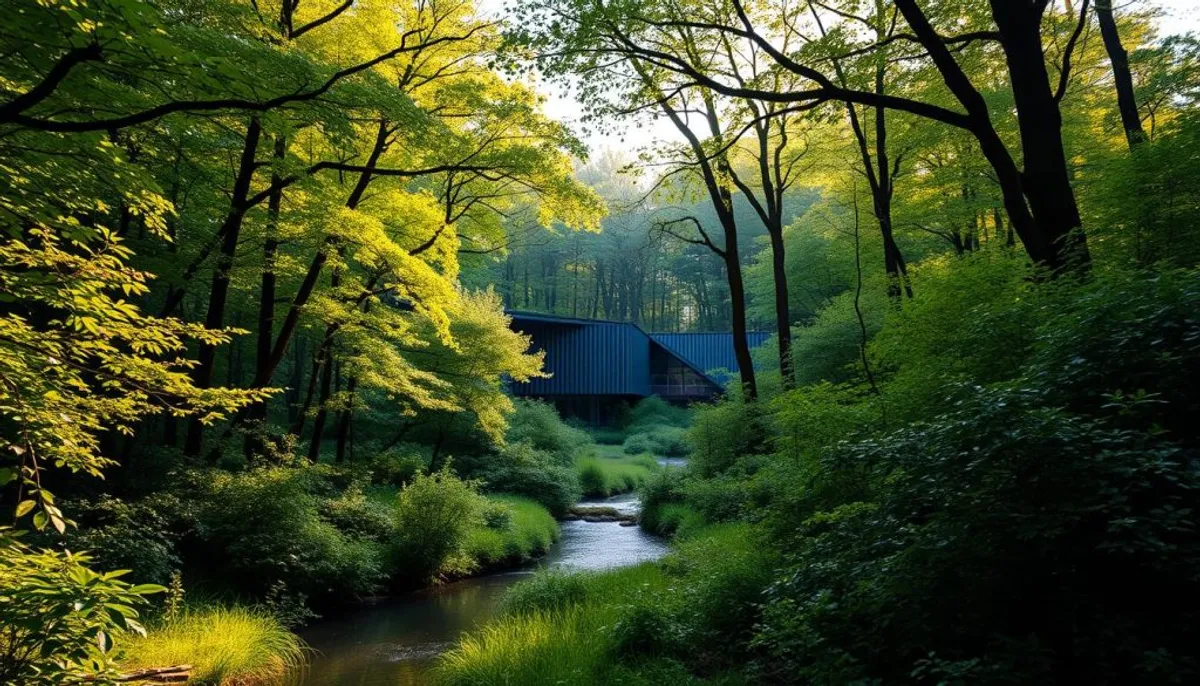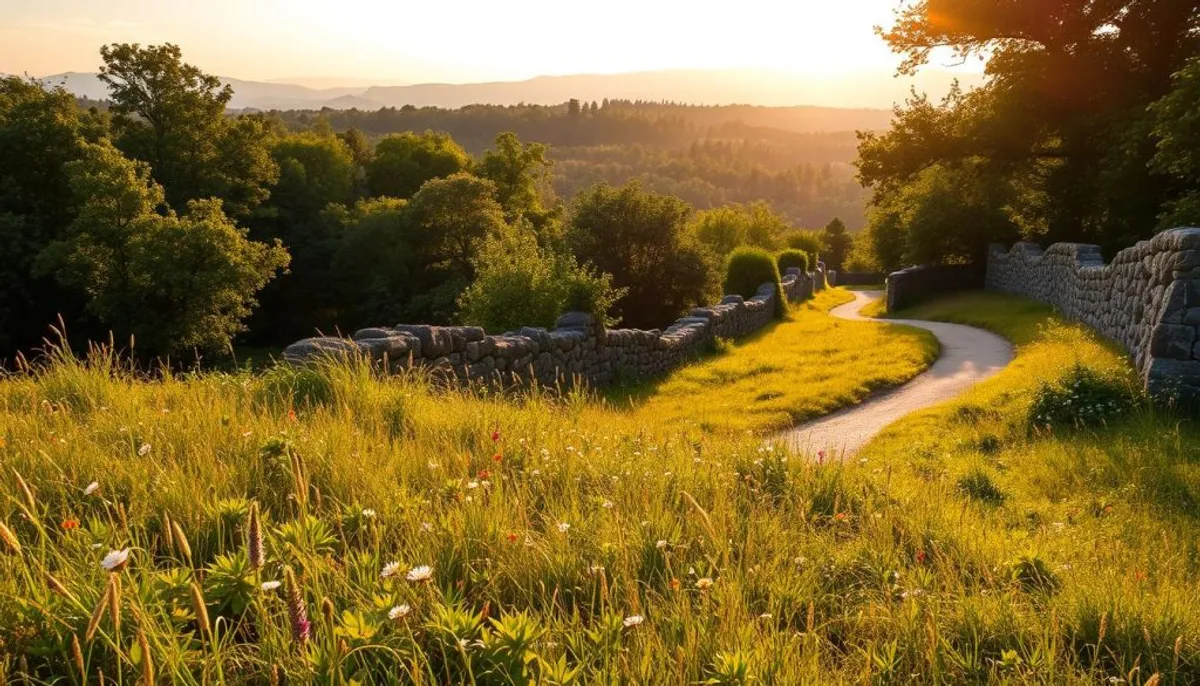The question “should we oppose nature and culture” is central to anthropological and philosophical debates. It prompts us to explore the links between the natural environment and human cultural constructions. These links are complex and profound.
Historically, nature was seen as the realm of necessity, opposed to the realm of freedom of culture. This view, inherited from thinkers like Rousseau, has deeply influenced our understanding of the world.

However, this opposition deserves to be nuanced. Modern anthropologists show that the notion of nature is itself culturally constructed. In fact, there is no pure nature, separate from any cultural influence.
The study of interactions between humans and their environment reveals a complex relationship. Culture appears as a means for humans to adapt to and transform their natural surroundings. This blurs the boundaries between nature and culture.
This reflection invites us to rethink our place in the world and our responsibility towards the environment. It opens us to a more nuanced and ecological understanding of our existence.
The historical distinction between nature and culture
The reflection on the relationship between nature and culture has evolved over time. This evolution has shaped our understanding of the world and our place within it. The distinction between nature and culture, deeply rooted in our cultural heritage, has influenced intellectual traditions and modern sociology. This dynamic also includes aspects of cultural adaptation, which play a crucial role in our interaction with our environment.
The Cartesian legacy and the mechanistic view
Descartes laid the foundations of a mechanistic view of the world. He considered nature as an object of study and mastery, subject to physical laws. This approach has had a lasting impact on our way of understanding the environment.
The influence of the Enlightenment on our perception
Enlightenment philosophers deepened this reflection. John Stuart Mill, in the 19th century, raised a paradox: either nature includes humans, or it excludes them, thus posing the question of our relationship with the environment. This period marked a turning point in our understanding of culture and traditions.
The evolution of structuralist thought
Structuralist thought formalized the nature/culture opposition. Claude Lévi-Strauss, in his work on kinship, showed how seemingly natural phenomena, like incest, vary culturally. This approach enriched sociology and our understanding of cultural heritage.
| Thinker | Main Idea | Impact on the nature/culture distinction |
|---|---|---|
| Descartes | Mechanistic view of the world | Nature as an object of study and mastery |
| John Stuart Mill | Paradox of inclusion/exclusion of humans in nature | Questioning the Human-Nature relationship |
| Claude Lévi-Strauss | Cultural variability of “natural” phenomena | Formalization of the nature/culture opposition |
This evolution of thought has profoundly marked our sociology and our intellectual traditions. It has influenced our understanding of cultural heritage and our relationship with nature.
Should we oppose nature and culture: a fundamental question
The distinction between nature and culture raises deep questions about our relationship with the world. This dichotomy, rooted in our Western thought, influences our approach to sustainable development and cultural diversity. In this reflection, cross-cultural analysis becomes essential to evaluate the relevance of these concepts. But is it really relevant?
Traditionally, nature is perceived as what exists without human intervention. In contrast, culture is the transformation of this nature by humans. This view, inherited from Aristotle, opposes natural objects to technical objects.

However, this opposition seems increasingly artificial. Modern anthropology questions this dualism. Philippe Descola emphasizes that the relationship between humans and nature will be crucial in the face of current environmental challenges. Moreover, some societies, like the Achuar, do not even conceive the idea of nature separate from humans.
Sustainable development requires a more integrated vision. We must rethink our relationship with the environment without systematically opposing nature and culture. Cultural diversity offers us valuable alternative perspectives to address these issues.
Ultimately, the question may not be whether to oppose nature and culture, but to understand their complex interaction. This reflection is essential for addressing the ecological and social challenges of our time.
Humans between natural state and civilization
The question of humans between their natural state and civilization sparks exciting debates. These debates push us to reflect on the social construction of humanity. They encourage us to explore Rousseau's theories and the concept of human perfectibility.
The Rousseauist theory of the state of nature
Rousseau proposes the idea of a state of nature where humans live in harmony, free and independent. He believes that entering culture is accidental and causes a denaturation. This view contrasts natural peace with rivalries born of civilization.
Perfectibility as a human characteristic
Perfectibility is a unique capacity of humanity, allowing for adaptation and continuous improvement. This characteristic shapes our relationship with nature and culture. It illustrates the complexity of our condition between instinct and progress.
The role of education in human development
Education is crucial in the development of humanity. It cultivates civility and distances us from primitive tendencies. Civilization appears as a constructed response to our instincts. This underscores the importance of learning in our social evolution.
| Aspect | Natural state | Civilization |
|---|---|---|
| Way of life | Solitary and independent | Social and interdependent |
| Relationships | Harmonious | Complex and potentially conflictual |
| Development | Limited by the environment | Stimulated by education and culture |
Culture as the fulfillment of human nature
The question of whether nature and culture are opposed or complementary is central in anthropology. This inquiry invites us to see culture as an expression of human nature, particularly through Greek arts and architecture.
Overcoming primitive instincts
Culture allows humans to transcend their primary instincts. According to Aristotle, humans have natural dispositions to develop culture. This perspective suggests that culture is the flourishing of humanity, rather than an opposition to its nature.

Adaptation and transformation of the environment
Through culture, humans adapt to and transform their environment. Studies reveal that 70% of indigenous communities have land management practices that enhance biodiversity. This figure shows how culture enriches our relationship with nature.
The creation of symbolic and social systems
Culture creates complex symbolic and social systems. These cultural constructions enrich our experience of the world. A global survey reveals that 65% of people believe that understanding culture and acquiring essential knowledge is crucial for improving our relationships with nature.
| Aspect | Impact of culture |
|---|---|
| Violent crime | Decreased by 50% over 25 years |
| Biodiversity | Increased by 40% in community-managed forests |
| Species conservation | 80% success with local cultural involvement |
The permeability between nature and culture
The boundary between nature and culture, once clear, is gradually fading. Recent studies reveal a complex interaction between these two domains. Our traditions, much more than isolated cultural phenomena, are rooted in our deep biology. Similarly, our interaction with the environment is influenced by our genetic heritage and social experiences.
Everyday life offers striking examples of this permeability. For instance, our taste for certain foods, although shaped by our culture, originates from our innate nutritional needs. Culinary traditions thus evolve in synergy with our environment and biology, just as a general knowledge quiz can enrich our understanding of these themes.
Epigenetics, a rapidly expanding field, demonstrates how our environment can influence the expression of our genes. These advances challenge the dichotomy between what is innate and what is acquired. They highlight that our biological nature and our culture interact, creating a complex dynamic that defines our humanity.
In conclusion, nature and culture do not oppose each other, but intertwine indefinitely. This nuanced perspective encourages us to reconsider our relationship with the environment and our traditions. It allows us to recognize their dual nature as both natural and cultural.
The interactions between humans and their environment
The study of relationships between humans and their natural environment is central to sociology and sustainable development. These interactions shape our cultural heritage and influence our adaptation to environmental conditions.
The impact of environmental conditions
Natural conditions play a crucial role in human development. An ancient Hippocratic treatise already highlights the link between the physiological constitution of humans and their environment. It reveals that morphology and moral dispositions vary according to exposure to winds and the quality of waters in inhabited cities.
Cultural adaptation to natural constraints
Societies adapt to the constraints of their environment, creating unique ways of life. This adaptation is reflected in our traditions and cultural practices. For example, the indigenous populations of America saw their numbers decrease by 10 to 20 times between 1492 and 1607 due to imported epidemics, illustrating the dramatic impact of environmental changes on cultures.
Modern ecological responsibility
Today, our understanding of human impact on the environment is evolving. The concept of biodiversity, introduced in 1986, has changed our perception of nature. Approximately 85% of animal and plant species are threatened by human activities. This awareness influences our cultural practices and our relationship with nature, underscoring the importance of sustainable development.
| Year | Key Event | Impact |
|---|---|---|
| 1986 | Introduction of the term “biodiversity” | Ecological paradigm shift |
| 1992 | Rio Convention | Recognition of local knowledge |
| 2000s | Concept of “fourth nature” | New vision of urban spaces |
The relationship between humans and their environment is complex and constantly evolving. It requires a pluralistic approach to protect our cultural and natural heritage while promoting sustainable development.
Conclusion
The relationship between nature and culture is fundamental to our humanity. Merleau-Ponty teaches us that humans cannot be separated from their environment. This idea urges us to reconsider how we live and exist.
Cultural diversity is not opposed to nature, but rather reflects it. Cultures vary according to the environments where humanity has evolved. This variety is the result of millennia of interactions between humans and their surroundings.
In the face of environmental challenges, it is essential to reassess our place in the ecosystem. With a global population of 6 billion, our impact on the planet is immense. We must move beyond anthropocentrism to recognize our link with the environment. Thus, we can preserve the cultural and natural diversity that enriches our humanity.
RelatedRelated articles


